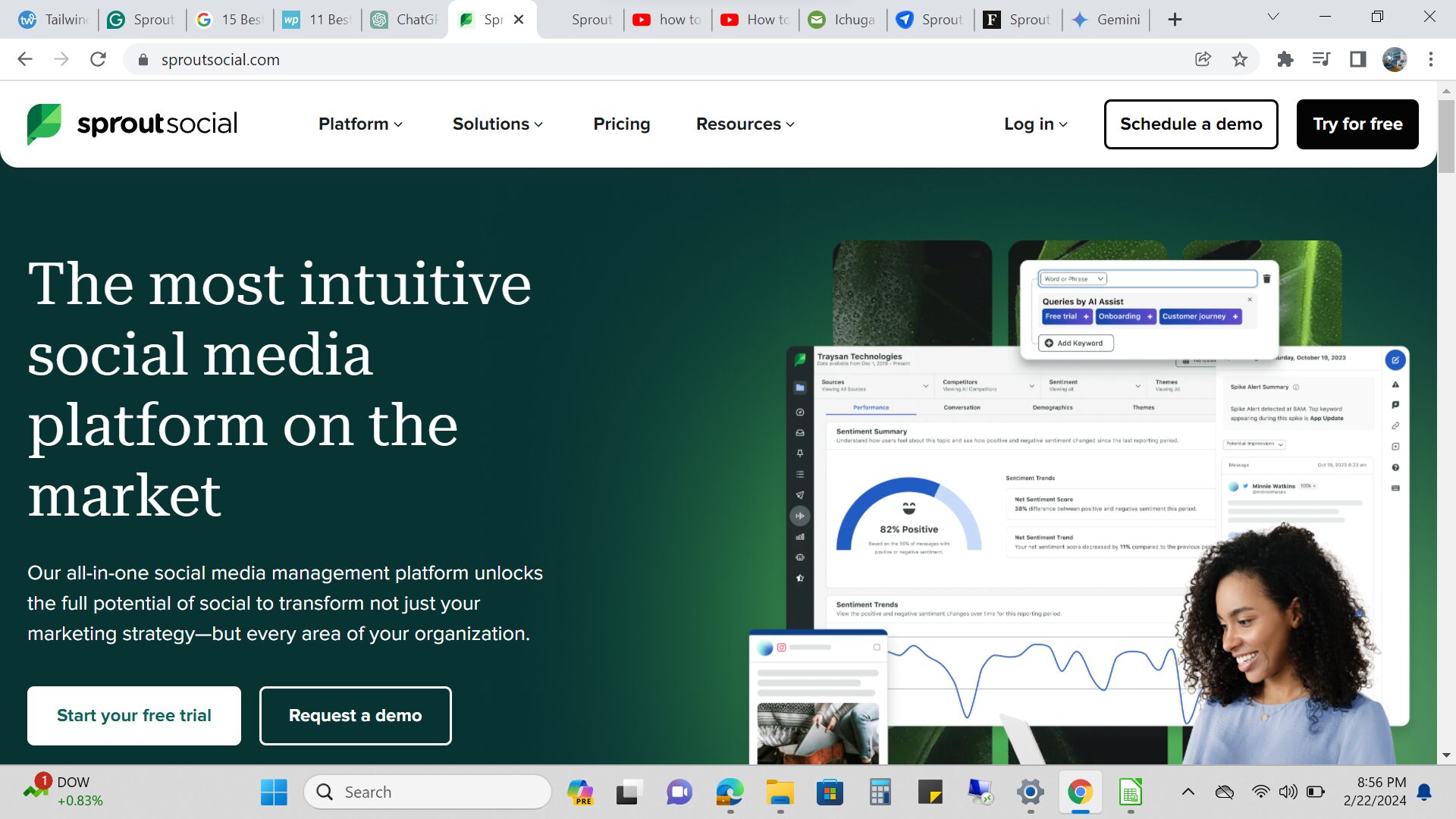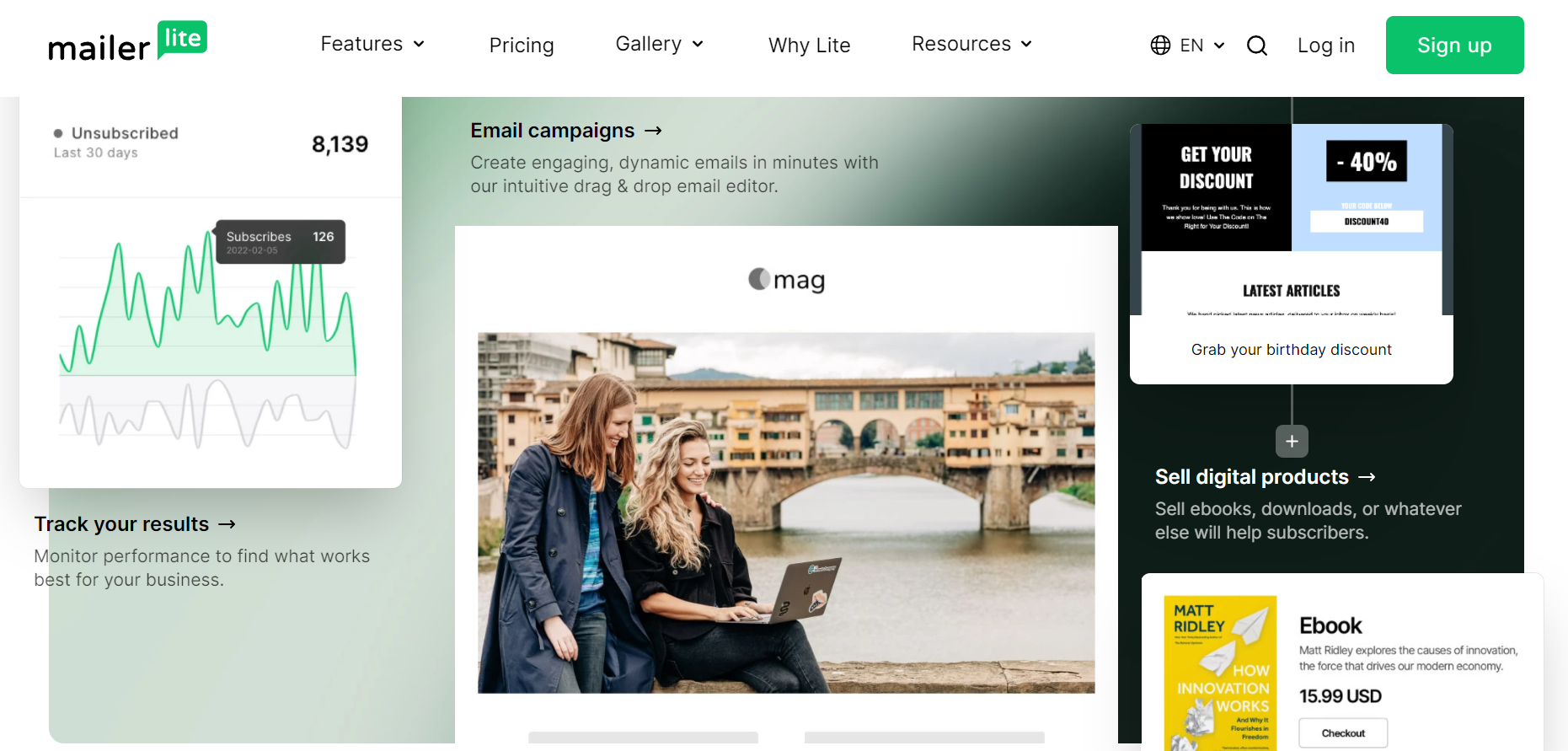What is CRM software?
Customer Relationship Management (CRM) software is a technology solution designed to help businesses manage and nurture their relationships with customers and potential customers. The primary goal of CRM software is to improve customer interactions, streamline processes, and enhance overall customer satisfaction. By centralizing customer data, interactions, and communication, CRM software enables businesses to better understand their customers, tailor their marketing efforts, and provide personalized service.
Key features of CRM software include:
1. Contact Management: Storing and organizing customer and lead information in a centralized database for easy access and management.
2. Lead and Opportunity Tracking: Monitoring the progress of leads and opportunities through the sales pipeline, from initial contact to conversion.
3. Sales Automation: Automating repetitive sales tasks such as sending follow-up emails, assigning leads to sales representatives, and tracking communication history.
4. Marketing Automation: Automating marketing campaigns, email marketing, and lead nurturing to engage customers at different stages of the buying journey.
5. Customer Support: Providing tools for managing customer inquiries, complaints, and support requests, often through ticketing systems or knowledge bases.
6. Analytics and Reporting: Generating insights and reports on sales performance, customer behavior, and campaign effectiveness to make informed business decisions.
7. Integration: Integrating with other software applications, such as email clients, social media platforms, and e-commerce systems, to centralize data and improve efficiency.
8. Communication History: Recording all interactions with customers, including emails, calls, and meetings, to maintain a comprehensive history of the customer relationship.
9. Workflow Automation: Automating and streamlining business processes, such as approval workflows or customer onboarding processes.
10. Mobile Access: Providing mobile apps or responsive interfaces that allow users to access and update CRM data on the go.
What are the benefits of CRM software?
CRM software benefits businesses in various ways, including:
– Improved Customer Service: Having access to customer information and interaction history enables better customer service and quicker issue resolution.
– Enhanced Sales Performance: Sales teams can better manage leads, prioritize opportunities, and tailor their approach based on customer data.
– Personalized Marketing: Marketers can create targeted campaigns and content based on customer preferences and behavior.
– Efficient Communication: Teams can collaborate more effectively and avoid duplicate communication efforts.
– Data-driven Insights: Analytics and reports provide insights into customer behavior, sales trends, and areas for improvement.
– Customer Retention: By understanding customer needs and preferences, businesses can build stronger relationships and increase customer loyalty.
CRM software comes in various types, including cloud-based (SaaS) solutions, on-premises solutions, and industry-specific solutions. The choice of CRM software depends on the size of the business, its specific needs, and its budget.
What are the Best 13 CRM Software for a Business?
1. Salesforce
2. HubSpot CRM
3. Zoho CRM
4. Microsoft Dynamics 365
5. Pipedrive
6. Freshsales
7. Insightly
8. Monday.com CRM
9. Agile CRM
10. Copper (formerly ProsperWorks)
11. Bitrix24
12. SugarCRM
13. Nimble
1. Salesforce – A Comprehensive CRM Solution
Salesforce is a leading CRM software known for its robust features and scalability. It offers a wide range of tools for sales, marketing, customer service, and analytics. Some of its key features include lead management, opportunity tracking, automated workflows, and AI-driven insights. Salesforce also provides a customizable dashboard and reporting tools to help businesses track their performance.
Here’s a breakdown of its features:
– Sales Cloud: Manages sales leads, contacts, and opportunities, and provides tools for forecasting.
– Service Cloud: Offers customer service solutions, including case management and support ticket tracking.
– Marketing Cloud: Facilitates marketing campaigns, email automation, and customer segmentation.
– Analytics: Provides real-time data and customizable reports for informed decision-making.
– Integration: Easily integrates with third-party apps and offers an extensive marketplace.
– Mobile App: Access your CRM on-the-go through its mobile app.
Salesforce’s scalability makes it suitable for businesses of all sizes. However, it might be complex for small businesses with limited needs. Pricing can also be relatively high compared to other options.
2. HubSpot CRM – User-Friendly and Free
HubSpot CRM is known for its user-friendly interface and a strong emphasis on inbound marketing. It offers core CRM features alongside marketing automation tools.
Here’s a brief overview of its features:
– Contact Management: Organizes and tracks contacts with ease.
– Lead Capture: Captures leads from your website, social media, and other sources.
– Email Automation: Sends personalized emails and tracks engagement.
– Marketing Automation: Nurtures leads with automated workflows and campaigns.
– Reporting: Provides insights into sales and marketing performance.
HubSpot CRM’s free plan makes it a great choice for startups and small businesses. However, its more advanced features might require integration with other HubSpot tools, which could lead to higher costs as your needs grow.
3. Zoho CRM – Affordable and Customizable
Zoho CRM offers a balance between affordability and features. It provides tools for sales automation, marketing campaigns, and customer support.
Key features include:
– Sales Automation: Manages leads, deals, and contact interactions.
– Email Integration: Connects with email services for streamlined communication.
– Workflow Automation: Automates repetitive tasks and processes.
– Analytics: Generates reports on sales and team performance.
– Mobile App: Allows access to CRM on mobile devices.
Zoho CRM is known for its flexibility and customization options. While it’s suitable for various business sizes, larger enterprises might find its advanced features limited compared to other solutions.
4. Microsoft Dynamics 365 – Integrated Business Solutions
Microsoft Dynamics 365 is a comprehensive suite of business applications that includes CRM and ERP functionalities. It offers seamless integration with other Microsoft tools, making it a strong choice for organizations already using Microsoft products.
Its key features include:
– Sales Automation: Manages leads, opportunities, and sales processes.
– Customer Service: Provides tools for case management and support.
– Marketing Automation: Executes campaigns and tracks customer interactions.
– Integration: Integrates with Microsoft Office, Power BI, and other tools.
– AI-driven Insights: Offers predictive analytics and AI-driven recommendations.
Dynamics 365’s integration capabilities are its standout feature, making it suitable for businesses looking for a holistic solution. However, its complexity and pricing might be challenging for smaller businesses.
5. Pipedrive – Streamlined Sales Process
Pipedrive is designed to simplify the sales process, making it a great fit for small to medium-sized businesses. Its features focus on managing deals and contacts effectively.
Key features include:
– Deal Management: Tracks deals through customizable stages.
– Contact Management: Stores and organizes customer information.
– Sales Reporting: Provides insights into team performance.
– Email Integration: Syncs with email for seamless communication.
– Mobile App: Allows access to CRM on mobile devices.
Pipedrive’s intuitive interface and sales-focused features make it ideal for businesses that prioritize pipeline management. However, it might lack the marketing and customer service features offered by other CRMs.
6. Freshsales – All-in-One Sales CRM
Freshsales is an all-in-one sales CRM that offers features for lead management, email tracking, and reporting. Its intuitive design and affordability are notable.
Key features include:
– Lead Management: Captures, nurtures, and qualifies leads.
– Email Tracking: Monitors email opens, clicks, and replies.
– Sales Analytics: Generates reports on sales performance.
– AI-powered Lead Scoring: Identifies the most promising leads.
– Integration: Connects with popular third-party apps.
Freshsales’ user-friendly interface and affordable pricing are ideal for small businesses. However, its marketing and customer service features might not be as comprehensive as some other CRMs.
7. Insightly – Project-Centric CRM
Insightly is known for its project management capabilities integrated with CRM functionalities. It’s suitable for businesses that want to track both customer relationships and projects.
Key features include:
– Project Management: Tracks project progress, tasks, and milestones.
– Contact Management: Manages leads, contacts, and organizations.
– Email Integration: Syncs with email for seamless communication.
– Automation: Automates tasks and workflows.
– Reporting: Provides insights into sales and project performance.
Insightly’s project-centric approach makes it stand out for businesses that need to manage both customer relationships and projects. However, its features might be too specialized for businesses focused solely on CRM needs.
8. Monday.com CRM – Visual and Customizable
Monday.com CRM, part of the popular work operating system, offers visual and customizable features for managing customer relationships. It’s ideal for businesses seeking a unique approach to CRM.
Key features include:
– Customizable Workflows: Adapts to your specific processes.
– Visual Interface: Offers a visual representation of data and tasks.
– Automation: Automates routine tasks and communication.
– Integration: Connects with various tools and platforms.
– Collaboration: Facilitates teamwork and communication.
Monday.com’s visual and customizable approach makes it suitable for businesses with unique workflow requirements. However, its CRM-specific features might not be as extensive as other dedicated CRMs.
9. Agile CRM – All-in-One Marketing Platform
Agile CRM offers a comprehensive suite of marketing, sales, and customer support tools. It’s designed for small and medium-sized businesses looking for an all-in-one solution.
Key features include:
– Marketing Automation: Executes campaigns and tracks interactions.
– Sales Automation: Manages leads, opportunities, and deals.
– Customer Support: Provides tools for case management and support.
– Integration: Connects with various apps and services.
– Analytics: Generates reports on marketing and sales performance.
Agile CRM’s all-in-one approach can streamline operations for businesses. However, its features might be less specialized compared to other dedicated CRMs.
10. Copper (formerly ProsperWorks) – CRM for Google Workspace
Copper, formerly known as ProsperWorks, is a CRM that seamlessly integrates with Google Workspace (formerly G Suite). It focuses on simplifying relationship management and is particularly suitable for businesses that heavily rely on Google tools.
Key features include:
– Google Integration: Integrates with Google Workspace apps for streamlined communication.
– Lead and Contact Management: Organizes leads and customer information.
– Email Tracking: Monitors email interactions and updates CRM records.
– Sales Reporting: Provides insights into sales performance.
– Mobile App: Allows access to CRM on mobile devices.
Copper’s integration with Google tools makes it an excellent choice for businesses that use Google Workspace extensively. However, it might lack some advanced features offered by other CRMs.
11. Bitrix24 – Collaboration-Oriented CRM
Bitrix24 is a CRM platform that emphasizes collaboration and communication within teams. It offers a range of tools beyond traditional CRM functionalities.
Key features include:
– Social Collaboration: Integrates social networking and communication within the CRM.
– Task and Project Management: Manages tasks, projects, and deadlines.
– Contact Management: Organizes customer information and interactions.
– Communication Tools: Includes chat, video conferencing, and intranet features.
– Automation: Automates routine processes and tasks.
Bitrix24’s collaboration-oriented approach makes it suitable for businesses that prioritize teamwork and communication. However, its extensive features might be overwhelming for smaller businesses with simpler needs.
12. SugarCRM – Customizable and Open Source
SugarCRM offers a customizable and open-source CRM solution that caters to businesses with unique requirements. It provides tools for sales, marketing, and customer support.
features include:
– Customization: Allows extensive customization to match specific business processes.
– Sales Automation: Manages leads, opportunities, and sales activities.
– Marketing Automation: Executes campaigns and tracks interactions.
– Customer Support: Provides tools for case management and support.
– Integration: Connects with various apps and services.
SugarCRM’s customization options make it a great fit for businesses seeking tailored solutions. However, its open-source nature might require more technical expertise to implement and maintain effectively.
13. Nimble – Social CRM for Small Businesses
Nimble is a social CRM designed for small businesses that want to leverage social media for customer relationship management. It consolidates contact information and social interactions in one place.
Key features include:
– Social Integration: Aggregates social media profiles and interactions.
– Contact Management: Organizes leads, contacts, and interactions.
– Email Tracking: Monitors email engagement and interaction history.
– Sales Insights: Provides social and engagement insights for sales outreach.
– Mobile App: Offers mobile access to CRM features.
Nimble’s social-focused approach makes it ideal for businesses that prioritize social media engagement. However, it might lack some advanced features offered by more comprehensive CRMs.
Conclusion:
In the contemporary business landscape, Customer Relationship Management (CRM) software has evolved into an indispensable tool for fostering robust customer relationships, streamlining operations, and driving sustainable growth.
The dynamic capabilities of CRM software, ranging from efficient contact management and personalized communication to insightful analytics and process automation, have proven instrumental in helping businesses stay competitive and customer-centric.
By centralizing data, facilitating collaboration, and enabling data-driven decision-making, CRM software empowers organizations to understand their customers better, tailor offerings to their needs, and ultimately enhance customer satisfaction and loyalty. As businesses continue to navigate the ever-evolving demands of the market, embracing the power of CRM software stands as a pivotal step toward achieving long-term success and sustained business growth.
FAQ: Best CRM Software
Q1: What are the best CRM software options available?
A: There are several top-notch CRM software solutions to consider, each catering to different business needs. Some of the widely recognized options include Salesforce, HubSpot CRM, Zoho CRM, Microsoft Dynamics 365, and Pipedrive.
Q2: How do I choose the right CRM software for my business?
A: To select the best CRM software, evaluate your business requirements, scalability needs, budget constraints, and integration capabilities. Consider factors such as user-friendliness, customization options, automation features, analytics, and customer support.
Q3: Is there a free CRM software option?
A: Yes, many CRM software providers offer free versions with limited features, suitable for small businesses or startups. HubSpot CRM, Zoho CRM, and Freshsales are some examples of free or freemium CRM solutions.
Q4: What if my business needs specialized features?
A: Depending on your industry and specific needs, you might consider industry-specific CRM solutions. For example, real estate professionals might opt for tools like Propertybase, while healthcare providers might explore solutions like Kareo.
Q5: Can CRM software integrate with other business tools?
A: Most modern CRM software offers integration capabilities with various business tools, such as email marketing platforms, e-commerce systems, accounting software, and more. It’s essential to check the compatibility of the CRM software with your existing tech stack.
Q6: Is cloud-based or on-premises CRM better?
A: Cloud-based CRM is more popular due to its flexibility, accessibility, and ease of implementation. On-premises CRM can offer more control over data but may require higher upfront costs and maintenance efforts.
Q7: How can CRM software benefit small businesses?
A: CRM software can help small businesses by centralizing customer data, improving communication, automating tasks, and aiding in targeted marketing efforts, ultimately leading to better customer relationships and increased sales.
Q8: Is CRM software only suitable for sales teams?
A: No, CRM software can be beneficial for various departments, including sales, marketing, customer support, and even management. It facilitates cross-departmental collaboration and ensures a consistent customer experience across all touchpoints.
Q9: Can I migrate data from my current CRM to a new one?
A: Most CRM software providers offer data migration tools or services to help you transfer your existing data to the new system. However, it’s advisable to plan the migration process carefully to avoid data loss or disruptions.
Q10: How important is training for CRM adoption?
A: Training is crucial to ensure successful CRM adoption. Comprehensive training can help your team fully utilize the software’s features, leading to improved efficiency and maximum benefits. Many CRM providers offer training resources and customer support to assist with the onboarding process.




